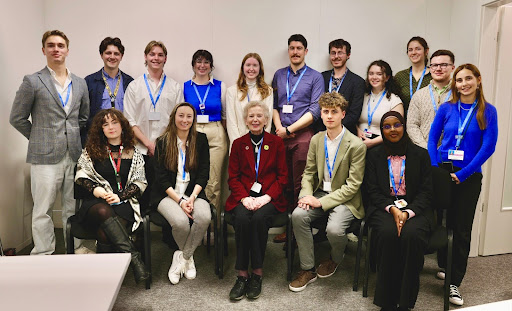The Irish Federation of University Teachers (IFUT) told The University Times on Friday that they were “stalling all further engagement with the Croke Park Agreement process” in the wake of compulsory redundancies in Trinity College. The announcement is expected to be made official with a press release on Sunday evening.
Two lecturers represented by the union in the School of Social Work and Social Policy were made involuntarily redundant in 2011, one on June 30th and another on December 29th. Another union staff member in the library was issued with a notice of compulsory redundancy this week after protracted negotiation with the college.
The three staff members were on contracts known as ‘contracts of indefinite duration’ (CIDs). Under the Protection of Employees (Fixed-Term Work) Act 2003 an employee is entitled to a CID after working one or more fixed-term contracts for a continuous period of four years. The lecturing staff had been employed by the university for at least ten years, The University Times understands, with one substantially exceeding this.
Speaking to The University Times IFUT General Secretary Mike Jennings said, “two people have already been made redundant and a third person has been issued with redundancy notice. This is completely unacceptable and has caused a lot of hardship for all involved.”
He also said that the staff members involved had received letters of support from inside the Department of Education. The Department has yet to come out with an official stance and any outcome promises to have widespread ramifications for relations between the public sector and the government.
The cases are subject to ongoing Labour Relations Commission proceedings where IFUT are expected to argue that college was obliged to provide an alternative position to the permanent staff members should their current position expire. College may attempt to draw a distinction between permanent contracts inside the university – with many permanent staff on contracts of definite duration which state that employment continues until a specified retirement date.
Another point of contention is the wording of the employees’ contracts. The documents say that the positions are “supported” by a specific stream of “non-core funding”. The letters of dismissal issues by the college to the staff members said that the positions were conditional upon this funding. The two sides in the dispute will likely debate the meaning of these terms.
Croke Park Agreement
The Croke Park Public Service Agreement is a non-legally binding deal between the Irish government and public sector sector unions. The Agreement is of enormous political significance and acts as the mechanism for implementing austerity measures and reform tied to the EU-IMF bailout without the threat of widespread industrial action. Minister for Public Expenditure Brendan Howlin confirmed the government’s support for the Agreement at the end of December, saying “it is working, and it is common sense to keep it.”
IFUT initially did not sign up to the Croke Park Agreement, citing the “loose wording” of the document. They agreed to participate in the process after clarifying the implications of the document to their satisfaction with the Department of Education in 2011.
The most significant concessions from public sector unions in the agreement were to enhance productivity and flexbility in work practices and reduce the number employed in the public service on a non-replacement basis. In exchange the government agreed not to introduce any further pay cuts or serve permanent public sector staff with notices of compulsory redundancy.
Previous Labour Court rulings, in addition to employment guidelines offered by government bodies the National Employment Rights Authority (NERA) and Citizens Information, indicate that CIDs are permanent contracts. In addition Provost Patrick Prendergast reaffirmed this when questioned on the status of the contracts during the course of the recent election campaign.
In the wake of the redundancies the Head of the School for Social Policy, Eoin O’Sullivan, circulated an e-mail among staff members in the school saying that he and his predecessor had repeatedly told staff on CIDs that they were permanent because this was the indication given by college.
An Irish Universities Association (IUA) statement issued in the wake of the Croke Park Agreement in 2010 denied that the agreement “casualised university labour”. In the process the IUA “[sought] to establish that tenure is consistent with the established corpus of employment law and, in that context, refers to the duration of contract.” These compulsory redundancies are likely to re-open the debate about the nature of tenure and job security in universities.
The University Times understands that the positions occupied by the staff fall under the remit of “non-core funding”. They were tied to specific streams of “non-core funding” but it is unclear whether this funding was derived from public or private funds. The phrase “external funding” was used by College in correspondence with the staff members and IFUT. A request to the College to define “non-core funding” and clarify the nature of the funding for these positions was declined.
In the past core-funding has referred to the funding provided by the students enrolled in the college – although how this has been allocated within the college has varied. As of July 26th, 2011 the college had 2,860 full-time staff, of which 1,726 were deemed to be “core-funded”.
College declined to respond to a series of questions asked by The University Times in the interests of “staff confidentiality”. “Some of the matters raised are subject to ongoing Labour Relations Commission proceedings which is the appropriate forum, but which also precludes the College from further comment.”







